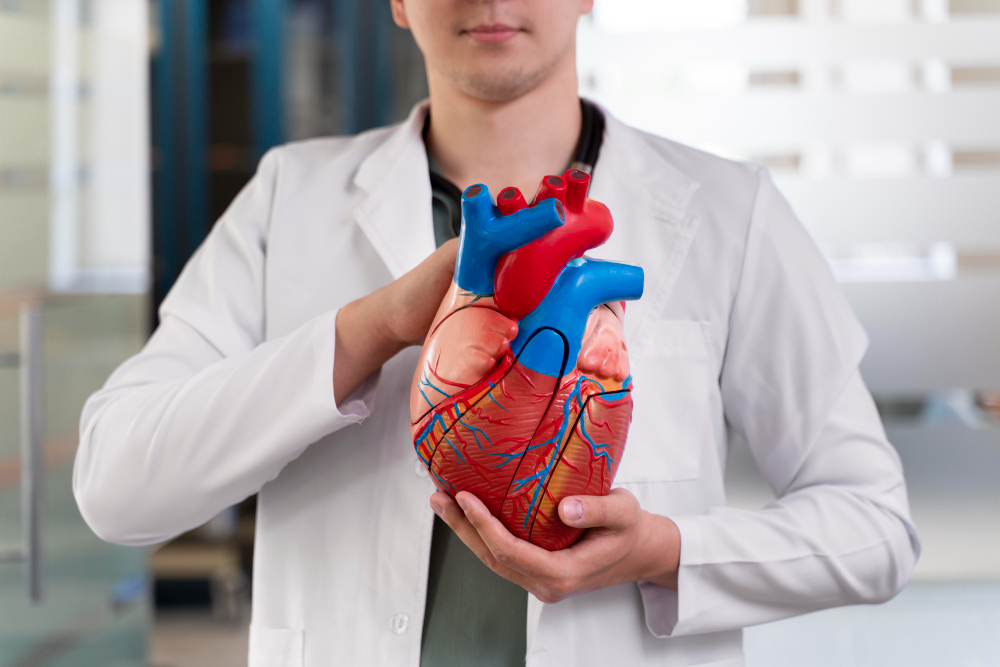Heart Ablation
Cardiologists employ multiple heart ablation methods to address irregular or abnormal heart rhythms (arrhythmias). The prevailing form of heart ablation is catheter ablation, which is a less intrusive procedure. Individuals who are not eligible for catheter ablation may require surgery for heart ablation.

Why do people have catheter ablation?
Unique cells in your heart generate electrical signals which then move along pathways to reach the chambers of your heart. These signals coordinate the beating of the upper and lower chambers in the correct order. If there are irregular cells, they can produce disordered electrical signals that result in erratic or rapid heartbeats known as arrhythmias. When this occurs, your heart may struggle to efficiently pump blood, leading to symptoms such as lightheadedness, breathlessness, weakness, and a noticeable pounding sensation in your chest.
Many individuals rely on medications to address their fast and inconsistent heart rhythms. However, these medications may not be effective for everyone and can lead to adverse reactions in certain individuals. In such instances, doctors may propose the use of catheter ablation. This procedure is commonly employed to treat supraventricular tachycardia (SVT), a condition caused by abnormal heart conduction fibers. Furthermore, catheter ablation is also utilized to manage other heart rhythm disorders like atrial flutter and atrial fibrillation.
What Are the Benefits of Ablation?
Not treating AFib increases the chances of developing blood clots, heart failure, or a stroke, which can potentially be fatal.
Before suggesting a treatment, the doctor will consider your risk factors. If you have no symptoms or if they are not severe, the doctor may choose to observe and delay treatment. However, they may also recommend warfarin or a different blood thinner to safeguard you against strokes.
If symptoms of AFib are severe and interfere with daily activities, cardiac ablation might be the appropriate treatment option for you.
Why is it done?
Arrhythmias, which are abnormal heart rhythms, can lead to:
- palpitations
- fatigue
- shortness of breath
- stroke.
The objective is to establish a consistent rhythm in order to avoid the occurrence of these conditions.

What happens before heart ablation?
A cardiologist or cardiac surgeon will carry out all cardiac ablation procedures in the hospital. Before determining the most suitable type of cardiac ablation procedure, your provider will conduct a comprehensive assessment of your heart condition and overall well-being.
Before the procedure, your healthcare provider will provide you with specific instructions. You might be requested to:
- Cease the consumption of blood-thinning medications such as aspirin or warfarin, as well as medicines used to treat irregular heart rhythms. Adhere to the instructions provided by your healthcare provider and discontinue these medications only according to their guidance.
- Do not consume any food or liquids the evening prior to your procedure. Your healthcare provider will provide you with precise guidelines.
- If you have a procedure at the hospital that does not require you to stay overnight, make sure you have someone prepared to give you a ride home.
Procedure
The medical professional places the catheter into your heart by going through a blood vessel. It is common for multiple catheters to be used. Typically, the catheters are inserted through a blood vessel in your groin, although the shoulder or neck may also be used, though less frequently.

To enhance visibility of blood vessels on X-ray images, dye can be administered via the catheter.
Electrical impulses are transmitted by sensors at the end of the catheter and gather data on your heart’s electrical activity. Your healthcare provider utilizes this information to pinpoint the source of your irregular heart rhythm and determine where to administer the ablation treatment. This specific aspect of the medical procedure is referred to as an electrophysiology (EP) study.
To induce small scars in your heart and prevent abnormal heart rhythms, one of the specific ablation methods is employed.
- Heat (radiofrequency energy)
- Extreme cold (cryoablation)
When the catheter is inserted into your heart and energy is being applied, you might experience slight discomfort. If you experience intense pain or have difficulty breathing, inform your healthcare provider.
After the Procedure
Following the catheter ablation procedure, it is advisable to remain in a state of rest for a duration of two to six hours in order to minimize the chances of bleeding. Healthcare professionals might exert pressure on the spot where the catheter was inserted. Throughout the recovery period, specialized devices will observe your heart’s activity. While some individuals may be discharged on the same day as the ablation, others may need to stay overnight or longer in the hospital.
Aftercare
How quickly you recover will be determined by the specific procedure you underwent (whether it was a catheter or surgical procedure) and if any other surgeries were done simultaneously.
After you arrive back at your home, make sure to monitor your incisions. It is expected to have some bruising, but if you encounter any of the following, it is advisable to reach out to your doctor:
- increased pain
- redness
- swelling
- blood loss or any other discharge from a surgical wound
- fever or chills.
During the initial 2 to 3 weeks following the procedure, individuals may encounter occasional episodes of the arrhythmia. It typically takes about 3 to 6 months for a stable and regular heart rhythm to be restored. To assist in the recovery of the heart’s normal rhythm, most individuals will likely be prescribed antiarrhythmic medications during this timeframe.
Treatment in Türkiye:
The medical staff of surgical teams, doctors, and consultants at REHABTÜRK can provide the best treatment options and free consultations, striving to stay up-to-date on the latest medical technologies and methods.
